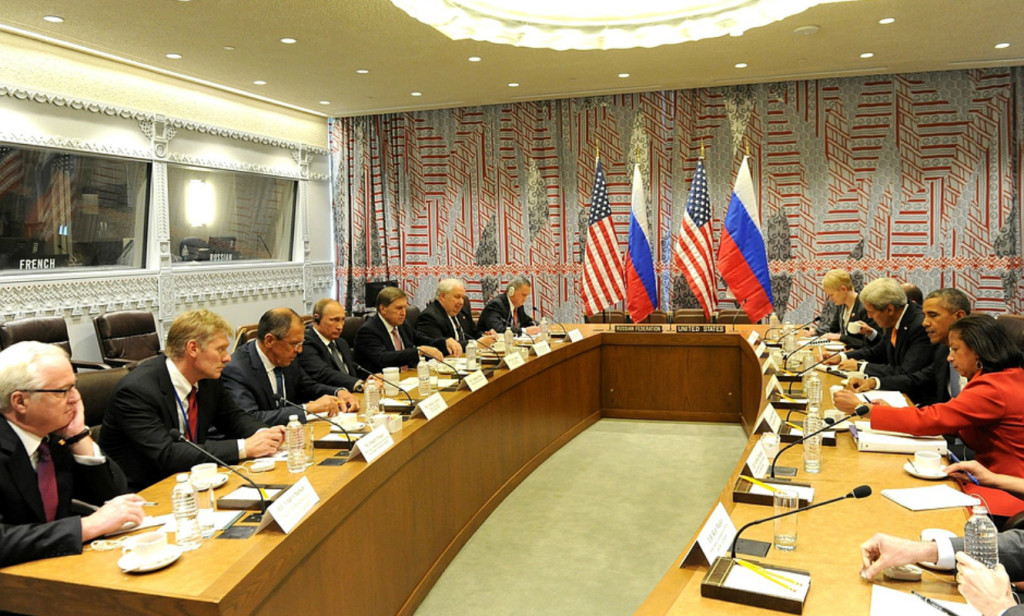Threatening Russia Will Not Bring Pro-Western Forces to Power in Moscow

There is a fairly universal consensus in Washington that Russia presents a potential geopolitical threat to the United States. The threat derives from Vladimir Putin’s desire to reshape the international order by restoring his country’s position as a great power and his willingness to modernize and wield Russia’s military forces in service of this aim. However, there is no such consensus on how to deal with this threat. Some experts argue for more robust U.S. and NATO policies aimed at deterring future Russian adventurism, including positioning significant military forces in Eastern Europe, providing lethal military equipment to Ukraine and Georgia, and starting preparations to deploy intermediate-range nuclear forces to Europe. They say that these measures, in combination with Russia’s economic travails, will strengthen the position of those in Moscow officialdom who are opposed to Russia’s military adventurism.
This argument is based on a fundamental misunderstanding of how humans react to threats. Its proponents are, in essence, arguing that increasing Russia’s perception of feeling threatened will make its leadership realize that they cannot fight the United States. This will lead the Kremlin to promote officials who want to engage in a more cooperative relationship with the West. A far more likely response is that Russians, because they feel more threatened, will be more willing to accept a higher level of belt-tightening in order to keep defenses strong even in times of economic turmoil. In other words, a more forward-leaning U.S. and NATO military posture is likely to result in the current Russian leadership becoming more entrenched, and receiving greater support from the majority of the Russian population.
This does not mean that Western leaders should allow Russia to have its way in its neighborhood. Some of the measures to strengthen Eastern European defenses and to deter further Russian adventures make a lot of sense, especially those related to increasing conventional troop levels in Eastern European NATO states. But Western leaders should be under no illusion that such policies will weaken proponents of belligerent policies in Russia. To the contrary, they are likely to strengthen them and result in continued confrontation. At the same time, a policy of conciliation toward Russia is likely to be interpreted as a signal of weakness and may encourage Russian leaders to further adventures abroad should future opportunities present themselves.
I am not convinced that there is anything the West can do to turn around the relationship with Russia as long as the current regime is in power. But the one thing that I am pretty certain of is that increasing Russia’s perception of threat from the West will not lead Russia to a more accommodating policy. Western leaders need to understand that and avoid deluding themselves about their chances of influencing Russia’s internal political dynamics with a more belligerent foreign policy.
Dmitry Gorenburg is a senior research scientist in the Strategic Studies division of CNA, a not-for-profit research and analysis organization. Dr. Gorenburg is also the editor of the journals Problems of Post-Communism and Russian Politics and Law and an associate at Harvard University’s Davis Center for Russian and Eurasian Studies. He has previously taught in the Department of Government at Harvard University and served as Executive Director of the American Association for the Advancement of Slavic Studies (AAASS). He holds a Ph.D in political science from Harvard University and a B.A. in international relations from Princeton University. He blogs on issues related to the Russian military at http://russiamil.wordpress.com.
Photo credit: www.kremlin.ru
